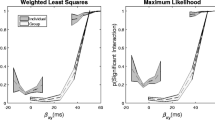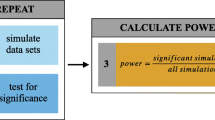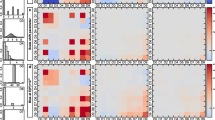Abstract
A main message from the causal modelling literature in the last several decades is that under some plausible assumptions, there can be statistically consistent procedures for inferring (features of) the causal structure of a set of random variables from observational data. But whether we can control the error probabilities with a finite sample size depends on the kind of consistency the procedures can achieve. It has been shown that in general, under the standard causal Markov and Faithfulness assumptions, the procedures can only be pointwise but not uniformly consistent without substantial background knowledge. This implies the impossibility of choosing a finite sample size to control the worst case error probabilities. In this paper, I consider the simpler task of inferring causal directions when the skeleton of the causal structure is known, and establish a similarly negative result concerning the possibility of controlling error probabilities. Although the result is negative in form, it has an interesting positive implication for causal discovery methods.
Similar content being viewed by others
References
Artzenius, F. (1992). The common cause principle. In D. Hull & K. Okruhlik (Eds.), PSA proceeding (Vol. 2, pp. 227–237). East Lansing, MI: PSA.
Cartwright N. (1999). The dappled world. Cambridge University Press, Cambridge
Dawid P. (2002). Influence diagrams for causal modelling and inference. International Statistical Review, 70: 161–189
Hausman D.M. and Woodward J. (1999). Independence, invariance and the causal Markov condition. The British Journal for the Philosophy of Science, 50: 521–583
McDermott M. (1995). Redundant causation. The British Journal for the Philosophy of Science, 40: 523–544
Mayo D. (1996). Error and the growth of experimental knowledge. University of Chicago Press, Chicago
Pearl J. (2000). Causality: Models, reasoning and inference. Cambridge University Press, Cambridge, UK
Ramsey, J., Spirtes, P., & Zhang, J. (2006). Adjacency-faithfulness and conservative causal inference. Proceedings of 22nd conference on uncertainty in artificial intelligence (pp. 401–408). Oregon: AUAI Press.
Reichenbach H. (1956). The direction of time. University of California Press, Berkeley
Robins J.M., Scheines R., Spirtes P. and Wasserman L. (2003). Uniform consistency in causal inference. Biometrika, 90(3): 491–515
Shimizu S., Hoyer P.O., Hyvarinen A. and Kerminen A. (2006). A linear non-Gaussian acyclic model for causal discovery. Journal of Machine Learning Research, 7: 2003–2030
Spirtes P., Glymour C. and Scheines R. (2000). Causation, prediction and search, 2nd edn. MIT Press, Cambridge, MA
Zhang, J. (2002). Consistency of causal inference under a variety of background assumptions. Master Thesis, Philosophy Department, Carnegie Mellon University.
Zhang, J., & Spirtes, P. (2003). Strong faithfulness and uniform consistency in causal inference. In Proceedings of the nineteenth conference on uncertainty in artificial intelligence (pp. 632–639). Morgan Kaufmann.
Zhang, J., & Spirtes, P. (2007). Detection of unfaithfulness and robust causal inference. Minds and Machines (submitted).
Author information
Authors and Affiliations
Corresponding author
Rights and permissions
About this article
Cite this article
Zhang, J. Error probabilities for inference of causal directions. Synthese 163, 409–418 (2008). https://doi.org/10.1007/s11229-007-9295-1
Received:
Accepted:
Published:
Issue Date:
DOI: https://doi.org/10.1007/s11229-007-9295-1




